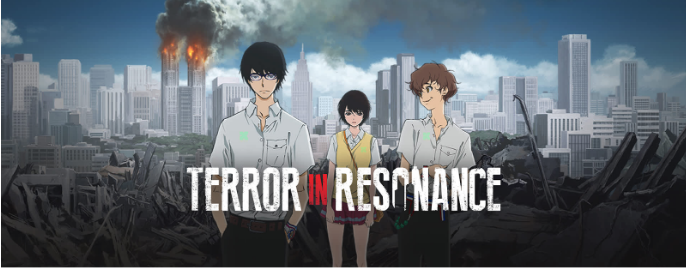


I’m also fond of that moment where 12 compared Lisa’s cooking to the cooking at the institute.

Merely by taking herself out of the toxic environment we call high school and placing herself in a healthy terrorist-heavy environment, she was able to become a much happier and more energetic being. None of it was particularly original, but the contrast between the lonely emo self she showed in the first 3.5 episodes and the bubbly overeager Lisa she seems to be now made it interesting. Thankfully, it seems like Lisa has forever been relegated to the realm of “actual character.” She didn’t do much in this episode, but she had some cute bonding scenes with Sphinx. Yes, I’m enjoying it now, but condensing the first three episodes into two would have done wonders for Terror. The show waited until episode four to do that, and episode five to explain why it was dragging its feet. You’ve got to convince them of that fact early on. You can’t expect the viewers to go into a show assuming you’re a good writer. Which doesn’t make me forgive the fact that those riddles were boring to begin with. Allegedly, every building that was bombed was somehow connected to a person behind the shadowy institute. So not only was this riddle better, but the show revealed that there actually was a point to all those previous riddles. We can all agree that if an organization were to kidnap children, rob them of their name, and force them to undergo cruel punishments, such an organization would be evil. Is Sphinx aware of this parallel, or was this just the show developing its message? I don’t particularly care, because either way, Zankyou no Terror gets across its point. Even the fact that they have numbers for names could be a riff on Japan’s brilliant idea to publicize their students’ ranks on tests. When I consider that Lisa and Sphinx both felt the same way about their life, I’m led to believe that it was a metaphor for Japan’s education system. That scene where the students at the institute were told they needed to abandon their names had such a dream-like quality to it that I was convinced it had to be a metaphor. Yes, 9 and 12 didn’t go to high school themselves, but the series is undoubtedly trying to draw parallels between the institute and real life high schools. This riddle felt vastly more personal, as the hint involved a case in which a group of high school students were punished unfairly.


 0 kommentar(er)
0 kommentar(er)
